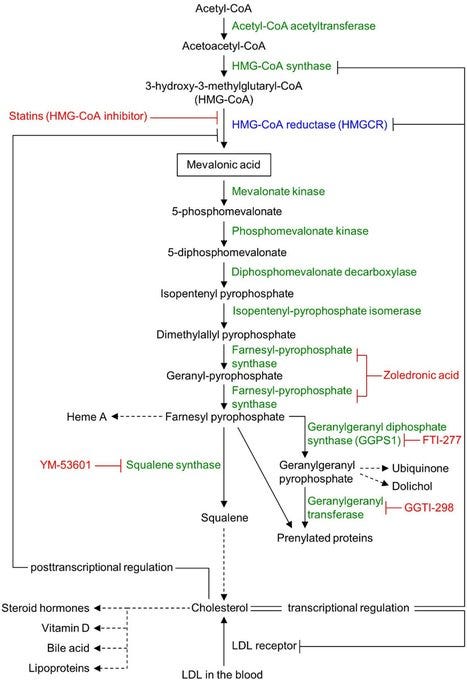Science and medicine is not, and should never be, a “one size fits all”.
Ten years ago my father was prescribed 40mg Lipitor. Within months of taking the drug I could see a deterioration in his health. He experienced muscle damage, memory loss, balance issues etc. I went back to see the Cardiologist. His solution was to prescribe Ezetimibe ! (Which lowers cholesterol via the gut rather than the liver).
Within a month, dad was admitted to A&E with acute pancreatitis. At that point his health was so bad that I asked him if he would be prepared to change his diet and leave the drugs alone for a while. During this period his brother, who had been on 80mg Lipitor for several years was diagnosed with ALS. (I can now make the connection, I couldn’t at the time). My dad started to make a reasonable recovery and I spent every spare moment wading through medical papers, studies, trying to work out exactly how these drugs could be so damaging. I felt like I had opened Pandora’s box. Once I was familiar with the mechanism of the drug, it all became so clear:
When statins are ingested, the liver absorbs most of the drug. Mevalonate synthesis in liver cells is blocked and liver cells are robbed of cholesterol and isoprenoids. Isoprenoids are a diverse class of over 30,000 biomolecules such as cholesterol, vitamin K, CoQ10, Geranylgeraniol, Farnesyl Pyrophosphate and all steroid hormones. The mevalonate pathway should have remained sacrosanct.
The cells respond to the death threat and start making more reductase to try to turn on the mevalonate. Because reductase is elevated, the nucleus wrongly thinks more LDL receptors are needed (What cells really need is more mevalonate) ! More LDL receptors are made anyway, that snatch up cholesterol from the blood and pull it into liver cells.
Reductase is then decreased and so LDL receptor synthesis is decreased. BUT - The liver cells detecting that cholesterol has been increased through the LDL receptors want isoprenoids. It turned on the mevalonate pathway and didn’t get any. All it got was cholesterol.
Cells respond appropriately as wired. Reductase is turned up again to try and make isoprenoids. LDL receptor synthesis is also turned up again (hard-wired). More blood cholesterol is lowered as it is literally shoved into liver cells via LDL receptors. In humans, undetected, are cells throughout the body choking to death from isoprenoid deprivation. The isoprenoid synthesis blockade by statins resultantly kills cells.
By blocking mevalonate, cells are “tricked” into thinking the cholesterol (and isoprenoid) levels are low. More reductase and more LDL receptors are made, and the latter remove blood cholesterol and lower it. By taking cholesterol from the blood via the LDL receptors, cells that have receptors get their fill of cholesterol. Blood cholesterol is lowered, your lab results look great and your doctor, and perhaps you, ignorant of the facts are happy bunnies.
That’s half the story. Cells get more than their fill of blood (dietary) cholesterol by the LDL cholesterol receptors - but cells remain deprived of isoprenoids. Isoprenoid synthesis remains blocked. Reductase stays elevated because the mevalonate pathway remains blocked and cells are starving for isoprenoids. Merck Pharmaceuticals spared consumers and prescribers from confusing “details” aka the truth that statins block both isoprenoids and cholesterol synthesis. When statins were marketed they were called “reductase inhibitors” (Drugs that block “the rate-limiting enzyme of cholesterol synthesis” (NOT mevalonate synthesis) which is what’s actually happening. You can google Isoprenoids as primary metabolites and see how vital they are to cell functions, cell replication, and membrane stability.
Blocking isoprenoids causes cells to lose their shape and “round up” (loss of dolichol), stop replicating (i.e. loss of isopentenyl adenine) and die (loss of COQ10). Adding cholesterol does not rescue cells from statin toxicity. Adding mevalonate does. The statin blockade of making isoprenoids from mevalonate is what kills cells.
So if you're considering lowering your 'numbers' please think about the gamble you're taking ! BTW My dad is 91 in 2 weeks time. He wouldn't be around if he'd continued on this drug ! My dad improved when his cholesterol was back where it was meant to be, not where they wanted it to be.


